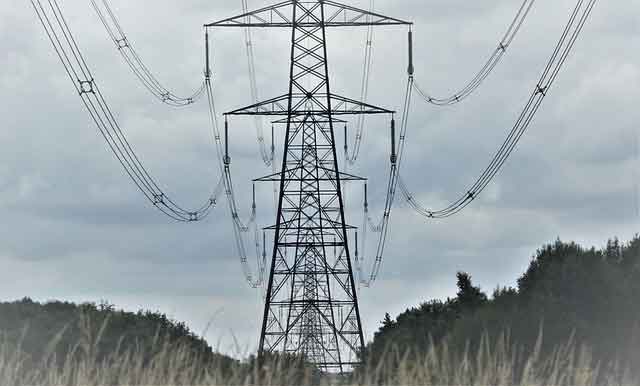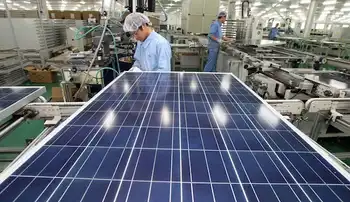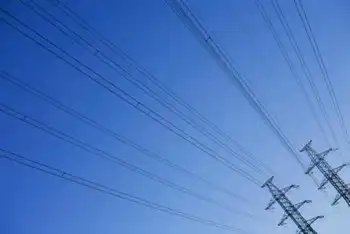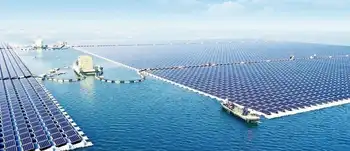Ontario COVID-19 Business Tax Relief outlines permanent Employer Health Tax exemptions, lower Business Education Tax rates, optional municipal property tax cuts, and hydro bill subsidies to support small businesses, industrial and commercial recovery.
Key Points
A provincial package of tax breaks and hydro subsidies to help small, industrial, and commercial businesses recover.
✅ Permanent Employer Health Tax exemption to $1M payroll
✅ Lower Business Education Tax rates for 94% of firms
✅ Hydro subsidies cut medium-large rates by 14-16%
The Ontario government's latest plan to help businesses survive and recover from the COVID-19 pandemic includes a suite of new tax breaks for small businesses and $1.3 billion to subsidize electricity bills for industrial and commercial operations.
The new measures were announced Thursday as part of Ontario's 2020 budget, which sets new provincial records for both spending and deficit projections.
The government of Premier Doug Ford says the budget will address barriers impeding long-term growth, ensuring the province forges a path to a full recovery from the pandemic.
"When the pandemic is over, Ontario will come back with a vengeance, stronger and more prosperous than ever before," Ford said at an afternoon news conference.
Small businesses with payrolls under $1 million will no longer have to pay the Employer Health Tax. The province temporarily raised the exemption from $490,000 to $1 million earlier this year, but the government is now making the change permanent.
The higher exemption means that about 90 per cent of Ontario businesses will no longer have to pay the tax, amounting to about $360 million by 2022, according to the province.
"We have heard from employers across Ontario that this measure helped them keep workers on the job during COVID-19," Finance Minister Rod Phillips told the legislature.
The 2020 budget lowers rates for the Business Education Tax (BET), a property tax earmarked for public education. More than 200,000 Ontario businesses, or 94 per cent, will see a lower rate.
"I believe this budget takes some significant initial steps to help stabilize the economy and help businesses, especially small businesses," said Toronto Mayor John Tory in a statement. Tory's office estimates that reductions to the BET will result in $117 million in lower taxes for commercial properties in Canada's largest city.
Municipal governments will also be permitted to reduce property taxes for small businesses, should they choose to do so. The province says it will "consider matching these reductions," which could amount to $385 million in tax relief by 2023.
Finance Minister Rod Phillips tabled the largest spending plan in Ontario history on Thursday afternoon. (Frank Gunn/The Canadian Press)
Municipalities currently have few options to provide targeted relief to local businesses. Guelph Mayor Cam Guthrie, chair of Ontario's Big City Mayors, said the prospect of lowering property taxes will likely be welcomed by local governments across the province.
"I really am looking forward to looking into that because it would give targeted relief to these businesses that have been asking for something from local governments for the past nine months," he said in an interview.
Tax cuts 'won't help a boarded up business,' NDP says
The 2020 budget does not contain any new direct funding for small businesses or their employees. NDP leader Andrea Horwath, who has proposed to make hydro public again, said those types of funding would help businesses more than potential tax reductions.
"A future hydro or tax cut won't help a boarded up business and it certainly won't help the folks that used to work there," Horwath said.
"Those measures are great if you're a company that's doing really well ... but let's face it, main streets across Ontario are crumbling."
Ontario did reveal on Thursday more details about a previously announced $300-million fund to support businesses in Toronto, Ottawa, Peel Region and York Region, which were placed under modified Stage 2 restrictions this fall. The money can be used to cover property taxes and energy bills for eligible businesses.
In a similar move, B.C. provided a three-month break on electricity bills for residents and businesses during the pandemic.
An undetermined amount of the $300 million will also be made available to businesses that are placed under "control" and "lockdown" rules, which are the two most severe restrictions in the province's updated reopening guidelines announced in October.
No regions are currently under these restrictions.
Elsewhere, B.C. saw commercial electricity consumption plummet during the COVID-19 pandemic.
Government to subsidize hydro bills for industrial businesses
The Ford government, which earlier oversaw a Hydro One leadership overhaul, is also taking aim at what it calls "job-killing electricity prices" in Ontario's industrial and commercial sectors.
The budget includes a $1.3 billion investment over three years to subsidize their hydro bills, a move praised by Canadian Manufacturers & Exporters as supportive of industry, which the province says have been inflated due to contracts signed by the previous Liberal government to purchase electricity generated by wind, solar and bioenergy.
"This is the legacy that is making our businesses uncompetitive," Phillips told reporters Thursday afternoon.
Ontario says its $1.3-billion investment to subsidize electricity bills will offset expensive contracts for green energy signed by the previous Liberal government. (Patrick Pleul/dpa via Associated Press)
The investment will lower rates for medium- and large-sized business by between 14 and 16 per cent, and follows an OEB decision on Hydro One rates that affects transmission and distribution costs, according to Ontario's calculations. Phillips said those rates will be among the lowest of any jurisdiction in the Great Lakes region.
The provincial government said the investment is necessary for Ontario to recover from the COVID-19 downturn. The Ford government expects that no further subsidies will be required by around 2040.
Related News













